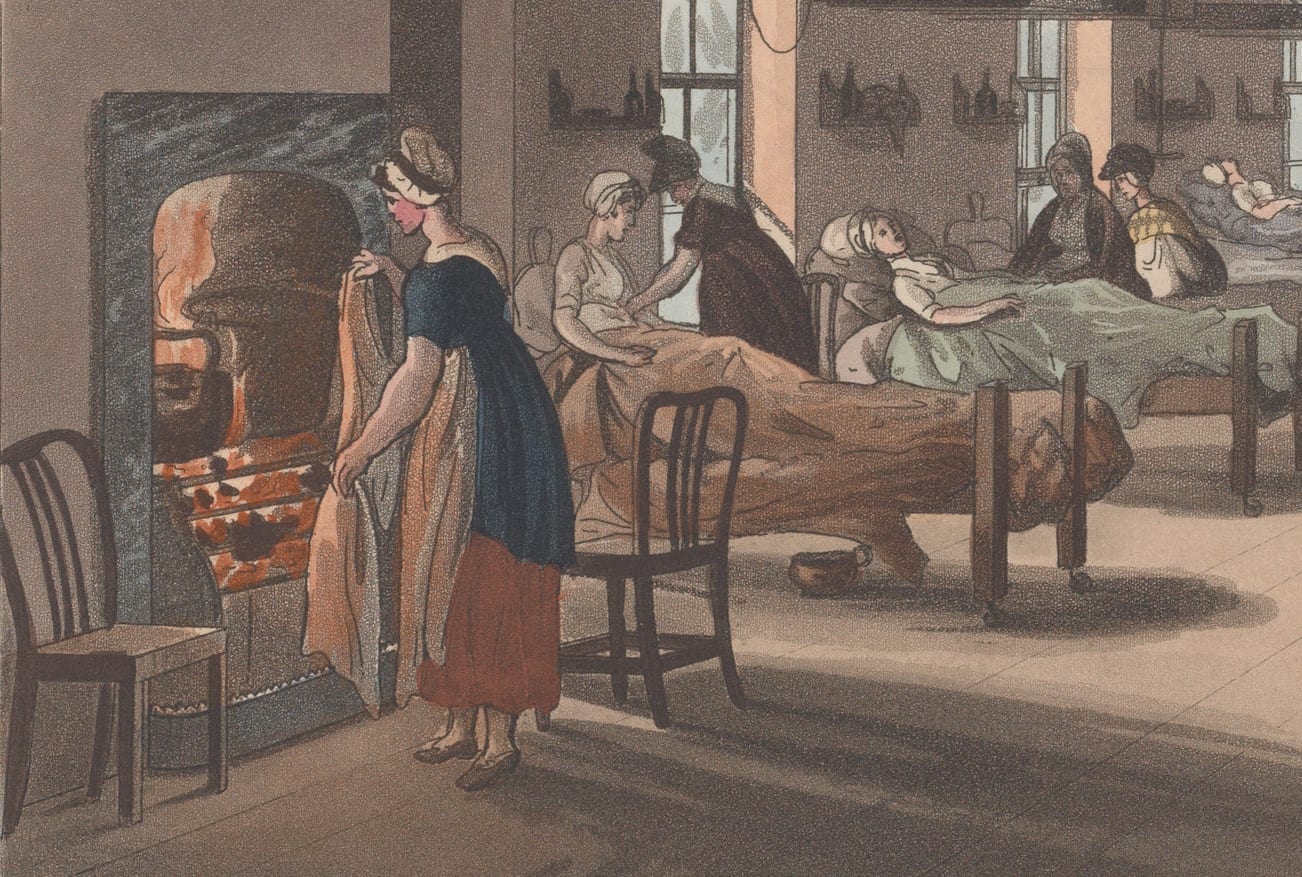“But they take more care of their sick than of any others; these are lodged and provided for in public hospitals. They have belonging to every town four hospitals, that . . . are so large that they may pass for little towns; by this means, if they had ever such a number of sick persons, they could lodge them conveniently, and at such a distance that such of them as are sick of infectious diseases may be kept so far from the rest that there can be no danger of contagion. The hospitals are furnished and stored with all things that are convenient for the ease and recovery of the sick; and those that are put in them are looked after with such tender and watchful care, and are so constantly attended by their skillful physicians, that as none is sent to them against their will, so there is scarce one in a whole town that, if he should fall ill, would not choose rather to go thither than lie sick at home.”

“. . . for those who are taken with fixed and incurable diseases, they use all possible ways to cherish them and to make their lives as comfortable as possible. They visit them often and take great pains to make their time pass off easily; but when any is taken with a torturing and lingering pain, so that there is no hope either of recovery or ease, the priests and magistrates come and exhort them, that, since they are now unable to go on with the business of life, are become a burden to themselves and to all about them . . . [they may] choose rather to die since they cannot live but in much misery; [and] being assured that . . . they behave not only reasonably but in a manner consistent with religion and piety . . . they starve themselves of their own accord, or take opium, and by that means die without pain . . . as a voluntary death, when it is chosen upon such an authority, is very honorable . . .”
Excerpted from Utopia by Thomas More

Leave a Reply